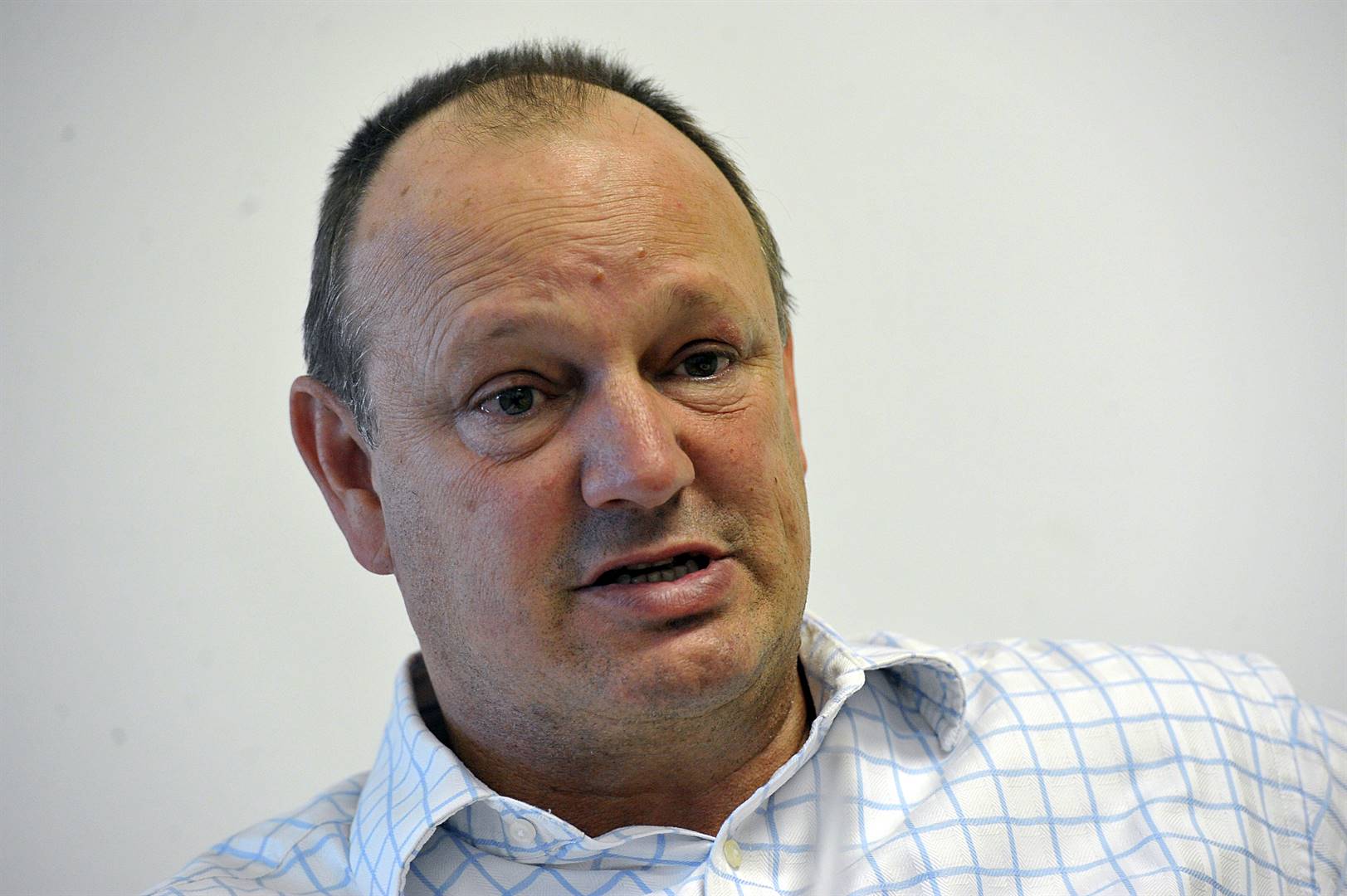
- The Organisation for Undoing Tax Abuse says the private sector has to back civil activism if it wants to prevent cities like Johannesburg from deteriorating.
- CEO Wayne Duvenage said he believed it was possible to arrest the flight from Johannesburg, if the right actions were taken.
- He also called for the establishment of co-governance vehicles to help fix municipalities.
- For more financial news, go to the News24 Business front page.
The Organisation Undoing Tax Abuse (OUTA) says the private sector has to embrace civil activism to stop crumbling cities like Johannesburg from collapsing, adding that quiet diplomacy is not working.
Wayne Duvenage - who heads up the nonprofit civil action organisation known for its battle to end SA’s controversial e-tolling system and getting former SAA chairperson Dudu Myeni declared a delinquent director - said on Thursday that if businesses backed more activism, even trends such as semigration from Johannesburg and other Gauteng cities to better-run municipalities like Cape Town could be reversed.
Duvenage, who was addressing property delegates at the SA REIT Conference 2024 in Houghton, said if this were not done, business would only have itself to blame for the deteriorating situation.
"If you don’t support and get behind civil activism and become active corporate citizens, then you have yourselves to blame for the loss and deterioration of the cities where we all live. We all invest in cities, we don’t invest in countries. We invest and grow our assets in a city environment. We live there, we play there, we go to school there, we die there. And if the potholes get bigger and the water collapses, people will move and your assets will become stranded."
Referring to the widespread semigration from Gauteng to the Western Cape, and Cape Town in particular, he said the crumbling services and infrastructure prevalent in the province and in Johannesburg especially, were largely to blame.
According to Duvenage:
To reverse this downward spiral, Duvenage said there was an urgent need for business to introduce "active corporate citizenship" saying it had been "far too silent" and that this "looking away and this not taking government on, head on" had to come to an end.
At the same time though Duvenage also praised organisations such as B4SA, Business Unity South Africa and Business Leadership South Africa for doing good jobs in their efforts to fix SA’s problems.
Dirt roads in Joburg? Unless there is change - yes
But generally, he said more needed to be done to hold government to account.
"If we don’t put government under pressure to fix the systems, then we must sit with the problems. And we have a collapsing economic powerhouse here in Johannesburg … I thought someone was exaggerating a couple of years ago when I heard them saying that Joburg’s roads, many of them in your suburbs that you live in, will be dirt roads. Well, I think that is going to be a reality unless we change it."
Referring specifically to the problems facing Johannesburg such as crumbling roads and potholes and failing water systems, he said these could be fixed, and that this could only be done collectively through active corporate citizenship.
Duvenage said the extent of corruption that is happening in the City of Johannesburg is "massive", adding that every day that business waited without taking action was "another day that we have to work harder down the road to dig ourselves out of the situation".
What was needed to be introduced were co-governance entities – consisting of civil society, business and the government – that could work together to fix the problems in Johannesburg and other Gauteng cities.
He emphasised, though, that he was not suggesting privatisation, as this also carried dangers as could be seen in countries such as the UK where privatised former state functions have led to situations where cities are "held to ransom" and costs soar.
Rather, co-governance special purpose vehicles – including civil society, business and government representation – were needed. For instance, sewage fees collected by a city could then be paid into this special purpose vehicle to ensure waste water treatment plants were fixed, rather than just leaving the cities to their own devices.
"If we don’t do this type of stuff, and a lot of it, then we will continue to see sewerage running into our dams – we have seen the pictures of the Vaal Dam – we will continue to see the city slide down … We don’t have the luxury as business to look away."
Duvenage said, however, there was a reluctance on the part of business to invest in the type of civil activism required to fix cities such as Johannesburg.
He urged delegates to talk to their industry and business associations and tell them that the old way of lobbying the government was not working.
Detailing the history of OUTA, which began initially as an organisation to fight e-tolls, but has since morphed into a civil activism body tackling broader issues, he said the private sector had to look to engage with local cities, coming to the table with an agenda to fix the problem, just like OUTA had initially done with the e-tolls.
But if this didn’t work it also had to be prepared to hold them to account, through the legal system if necessary.
Duvenage said municipalities could be fixed, but it was through "through active citizenry and through organised communities", pointing to the rise of residents' associations around the country.
For example, he said that in Makhanda (formerly Grahamstown) in the Eastern Cape, poor communities and rate payers had come together to have councils ousted successfully. In other communities, these partnerships had taken over the running of water and waste treatment plants.
SA, though, could not just leave the problems up to residents associations to solve, with Duvenage saying that business associations were not putting enough pressure on municipalities.
Often these local business associations have relationships with the local government and do not want to "upset the apple cart".
How Cape Town fixed it
In a panel discussion that followed Duvenage’s address, Quintin Rossi, who heads up JSE-listed Western Cape-focused property group Spear, underlined how the City of Cape Town’s city improvement district (CID) model had also worked really well to push back against challenges faced by property players.
"From our vantage point, real estate is the business of local markets. As big investors into real estate, the CID model effectively was introduced and the City of Cape Town, being probably about the year 2000, was the pilot of a top up service, that was effectively not about replacing the responsibility of the municipality but actually bringing an enhancement of safety and security, urban management and a social upliftment angle as a result of the fact that the City of Cape Town wasn’t always pristine."
He said Cape Town had also previously had its problems with "crime and grime", but that property owners – many of whom he pointed out were among the delegates – had decided it had to stop and this had helped lead to the introduction of the CID model.
This, said Rossi, had since evolved into 52 "very strong, very-well-run and operated" CIDs across the greater Cape Metro.
"And when you talk about the fact that the rubber hits the road when there is huge money at play, the revenue that will be generated out of these 52 CIDs to uplift as a top up service to these municipalities in this year alone will be close to R365 million. That in itself improves areas and when you improve areas you attract capital."
He said the City of Johannesburg had also not always been in the state it is now, adding that 10 or 15 years ago it was a very different story.
In Cape Town’s case the city there had "put a full stop behind the decay" and that the CID model holds people accountable.
"There is oversight that is implemented by municipalities. There are annual financial statements that have got to be submitted and approved. Where these CIDs have been implemented vacancies are lower and occupancy rates improve consistently."
Retail real estate-focused Vukile Property Fund’s managing director for southern Africa, Itumeleng Mothibeli, also pointed out the benefits of building relationships with officials at local government level to find solutions to problems faced by property landlords.
Using the example of the City of Ekurhuleni, he said Vukile had managed to build a relationship with one official who was a "superstar". In Queenstown, the planning department of the local municipality was also now "looking to get involved in our tenant mix strategies".




 Publications
Publications
 Partners
Partners












